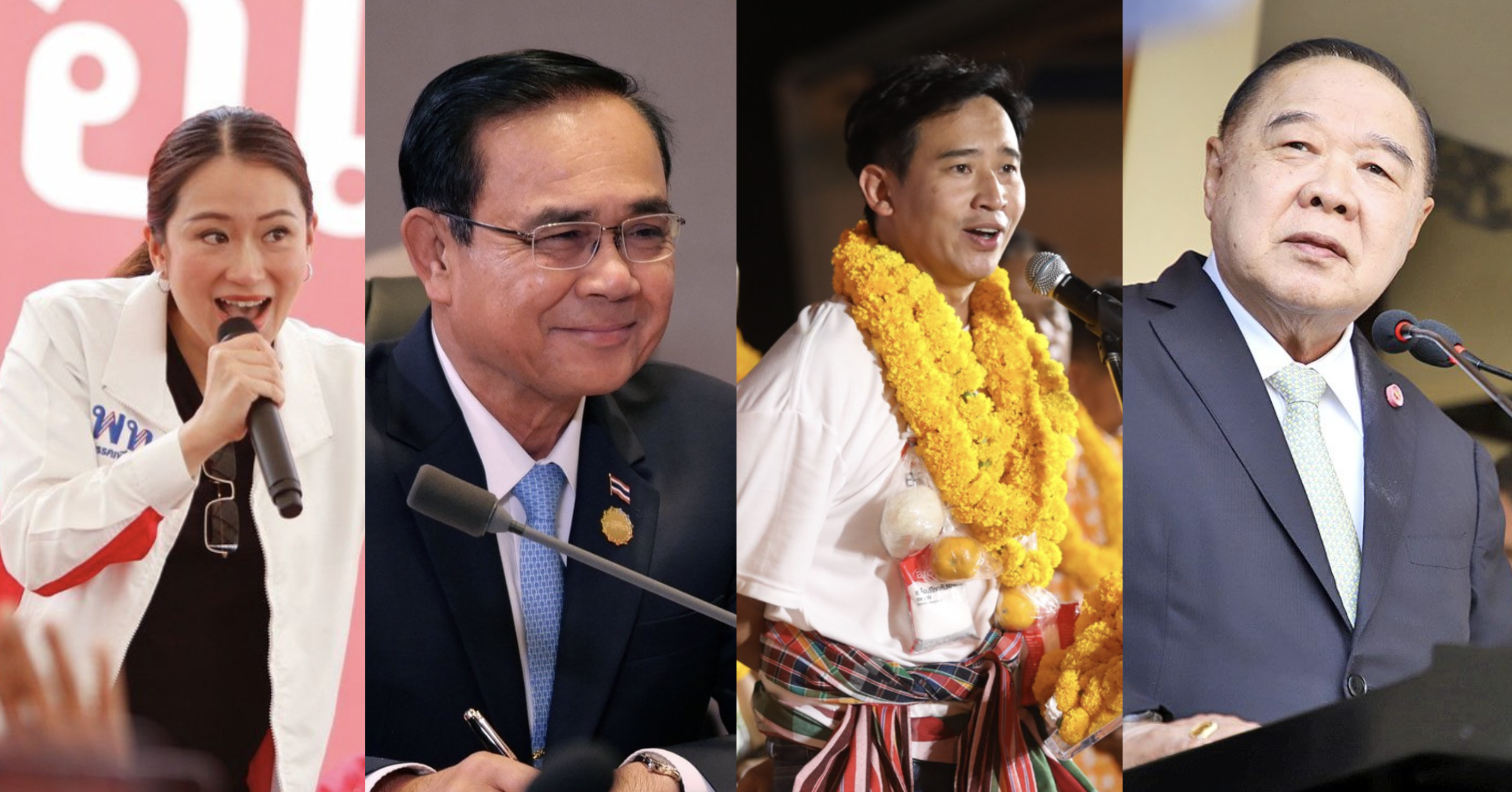Follow us on Telegram for the latest updates: https://t.me/mothershipsg
Thailand will be heading to the polls on May 14, 2023.
This will be the country’s second elections since the 2014 military coup, with the first one in March 2019.
With over 52 million eligible voters and a complex domestic political landscape, here are some things you might like to know about the election.
How does the election work?
Advanced voting for the elections will start on May 7, one week before the election date.
The Election Commission (EC) of Thailand is expecting a turnout of 80 per cent, which amounts to around 41 million voters, The Nation reported.
The polls will also mark the return of the two-ballot system. Thai voters will each receive two ballots, one for a constituency candidate and the other for their favoured political party, according to Thai PBS World.
Thailand’s House of Representatives consists of 500 seats. It is made up of 400 seats for Members of Parliament (MP) from district constituencies and 100 from the party ballot system.
This is a change in composition from the 350 and 150 seats respectively in the previous election.
Winners will be declared by the EC by early July and the parliament will then come together in mid-July to decide on their prime minister, Nikkei Asia reported.
The elected Prime Minister and members of the new cabinet are expected to swear their oaths before Thailand’s king in August 2023.
Major contesting parties
This year’s elections will see a showdown between United Thai Nation Party (UTN) and Thailand’s main opposition party Pheu Thai.
Others include pro-government parties such as the ruling Palang Pracharth Party and Bhumjaithai Party, the conservative Democrat Party, as well as opposition parties like Move Forward Party and Thai Sang Thai Party.
Who’s vying for Prime Minister?
Incumbent Prime Minister Prayuth Chan-o-cha, 69, leads the UTN and hopes to extend his grip on power through the elections.
He would only be able to remain in office until 2025 if he were re-elected as premier, Bangkok Post reported.
"After that, I wish that Mr Pirapan (Salirathavibhaga), the party leader and second prime ministerial candidate, would succeed me. I have more than 100 per cent confidence in him," he said.
Paetongtarn Shinawatra, daughter of former prime minister Thaksin Shinawatra who recently gave birth to her second child, is one of the three prime minister nominees from the Pheu Thai Party.
The other party candidates are property tycoon Srettha Thavisin and Chaikasem Nitisiri.
Her party has a strong lead against its rivals in the latest opinion polls, according to Bloomberg.
Other potential premier candidates include Pita Limjaroenrat from Move Forward Party, who is currently leading the opinion polls, as well as Deputy Prime Minister Prawit Wongsuwan of Palang Pracharth Party.
1st election since 2020 protests
This year’s election will also be Thailand’s first since 2019 and the 2020 protests.
That year, large scale protests led by students and young people broke out in the country in response to the dissolution of a pro-democracy opposition party and the results of the March 2019 election, which was won by the incumbent military leadership.
Protesters who defied the ban on anti-government actions to march on the streets had called for the removal of Prayuth, a new constitution and a reduction of the king’s powers.
With Thailand’s Generation Y and Z accounting for a total of 41.65 per cent of the electorate this year as reported by Thai PBS World, their votes could have a significant impact on the nation's political direction.
Key issues
The polls will also likely centre on the issues of Thailand’s democracy and the economy, Nikkei Asia reported.
Parties have been campaigning for better welfare programmes, such as raising the minimum wage, addressing rising household debt and providing agricultural subsidies, according to an earlier article by The Nation.
For instance, Pheu Thai pledged a one-time digital wallet handout of 10,000 baht (S$390) to everyone aged over 16, but this policy has been described as a populist measure, Bangkok Post reported.
With regard to democracy, anti-coup parties like Thai Sang Thai Party and Move Forward Party have also committed to an overhaul of the junta-drafted 2017 Constitution.
Considering the increasingly critical perception on Thailand's state of democracy and a steady loss in support for the military government, the upcoming elections will be a strongly contested one.
Relations with foreign powers
While the election issues may seem to be largely domestic-focused, its results could shift Thailand’s foreign policy, notably its relationship with junta-led Myanmar.
According to Nikkei Asia, Thailand’s military government has avoided directly criticising Myanmar’s military junta, who similarly seized power via a coup in February 2021.
They have continued to trade with one another despite the sanctions imposed by Western countries on Myanmar.
Therefore, a new opposition-led government in Thailand may potentially lead to a change in its engagement with Myanmar, such as supporting the latter's National Unity Government (NUG), according to Al Jazeera.
Additionally, while a coup is not entirely impossible due to its normalisation in the country, the occurrence of one may affect the U.S.-Thailand relationship which has warmed in the recent years.
Thailand could end up growing closer towards China instead, like how it did after the 2014 coup, according to Reuters.
Related:
Top image via candidates' Facebook pages
If you like what you read, follow us on Facebook, Instagram, Twitter and Telegram to get the latest updates.
